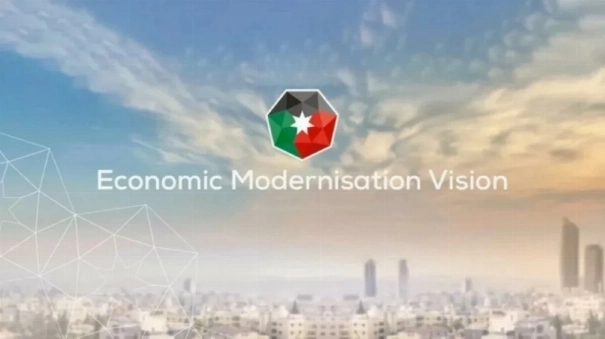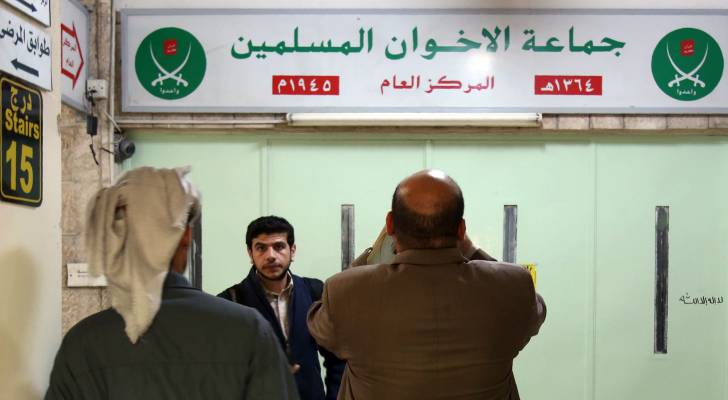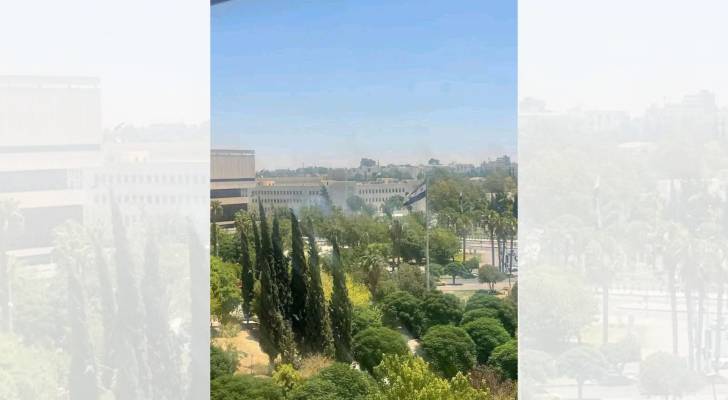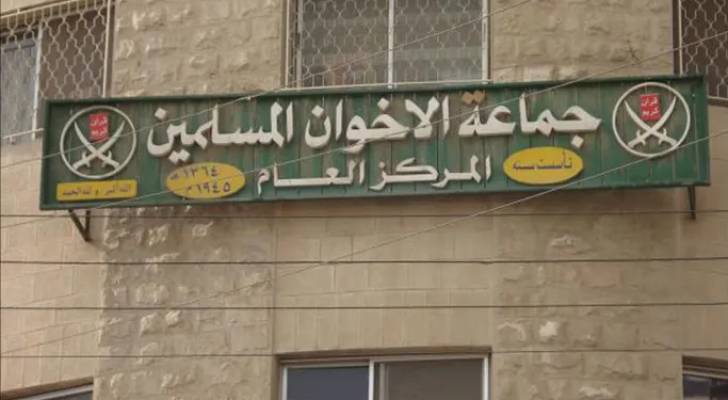EMV workshops discuss Agriculture, Food Security Sector

The Jordan Times
AMMAN — The Economic Modernisation Vision (EMV) workshops continued thursday at the Royal Hashemite Court with a focus on Jordan’s Agriculture and Food Security sector, underscoring its central role in driving economic growth, job creation and regional development.
Launched three years ago under Royal directives, the EMV positions the agriculture and food security sector as a key pillar of national transformation. The workshops brought together officials from government institutions, business leaders, and civil society representatives to review the sector’s progress and chart priorities for the next phase of
The EMV identifies Jordan’s strength in the Kingdom's strategic geographical location and proximity to high-demand markets, an influential sector in society, as it represents the main source of livelihood and provides wide employment opportunities in rural areas, the presence of research centres and laboratories that ensure control of food safety, implementation of agricultural education initiatives, raising livestock using traditional methods and exporting them to Gulf Arab markets, existence of food security legislation, stable supply of agricultural imports thanks to contracts with neighbouring countries, significant private sector participation with a high percentage of small and medium enterprises operating in the sector
The vision also aims to elevate Jordan in developing agricultural production using modern agricultural technologies, meeting current and future agricultural production needs to ensure sustainable food security, improving the sector's food value added and developing supply chains, developing agro-industrial and agro-marketing opportunities for exports
Major initiatives of the sector are; establishing a specialised body for food security, setting up a digital food data system, establishing an integrated agri-food and processed food complex, rethinking agricultural financing and insurance subsidies, developing agricultural promotion and marketing, establishing a system of cooperative societies and agricultural unions, encouraging modernisation and innovation, and expanding the use of modern technologies, providing agricultural education and vocational training services to improve farmers' skills, supporting investment projects, agricultural technologies, and research and development in the field of food technologies
Key achievements for the first phase are institutionalising food security through the establishment of the Supreme Council for Food Security, increasing agricultural exports by about JD560 million, establishment and operation of the National Seed Bank, increased contribution to the GDP, decrease in agricultural imports as a result of increased local production, establishment of six food industry factories
Despite the progress, the sector continues to face challenges from the farmers side. General Manager of Abu Sido Farms, Mohammed Abu Sido pointed out the challenges farmers face in communicating with the different bodies that represent them. There are positive aspects such as having a future vision and plans to support exports and provide government support.
Abu Sido said that the agricultural sector lacks skills related to manpower-intensive work such as drilling, installation and maintenance, as most of the local labour is made up of women. The use of technology can help improve productivity, but the agricultural sector relies heavily on traditional methods due to the high cost of technology and the lack of stable markets
There is a gap lies in the lack of unification of demands between the different bodies representing the agricultural sector, as there are more than 16 bodies working independently, which leads to challenges in communication and coordination, according to Abu Sido.
He also said the positive aspects include the existence of a future vision and development plans, in addition to supporting exports through aviation and providing discounts on maritime exports
Food security expert Fadel El Zubi stressed that technology is the solution to climate change. "Now, technology has entered the production process, which contributes in reducing costs."
He said that "when we plant or harvest using climate smart agriculture, there is a guarantee for the existence of this production with a less water use, as well as preservation of soil."
Zubi added "Technology does not enter the production process, it entres the harvest process, such as use of drones and robots."
He pointed out that the government, a while ago, approved a law or instructions for the use of drones in agricultural work.
"This is a great thing. The drone can go out and clean your soil, and if there are insects or diseases, it can identify them. And with the drone, it can spray the entire garden." He said.
This is development. Harvesting can be a tool, and therefore, this saves a lot of waste and loss of food. So, technology and automation have a role.
The expert also pointed out that the vision highlights the cooperation as a part of the solution. "First, in the issue of ownership, and second, the ownership of production and marketing tools becomes bigger and greater. By the way, cooperatives do not have to be in one village or area. It can be virtual."
As part of the EMV’s regular evaluation process, these workshops, which will continue until July 29, are intended to keep the vision responsive to international shifts and local needs, ensuring its alignment with best practices and its potential to deliver measurable results.
Latest News
-
 Legal expert outlines repercussions for Muslim Brotherhood financial scheme in Jordan
Legal expert outlines repercussions for Muslim Brotherhood financial scheme in Jordan
-
 “Israeli” military attacks Syrian army headquarters
“Israeli” military attacks Syrian army headquarters
-
 Over 30 million JD: Jordan authorities uncover massive Muslim Brotherhood covert funding scheme
Over 30 million JD: Jordan authorities uncover massive Muslim Brotherhood covert funding scheme
-
 Syria announces ceasefire in Druze-majority Suwayda after deadly clashes
Syria announces ceasefire in Druze-majority Suwayda after deadly clashes
-
 “Israel” says striking Syrian govt forces in Suwayda
“Israel” says striking Syrian govt forces in Suwayda